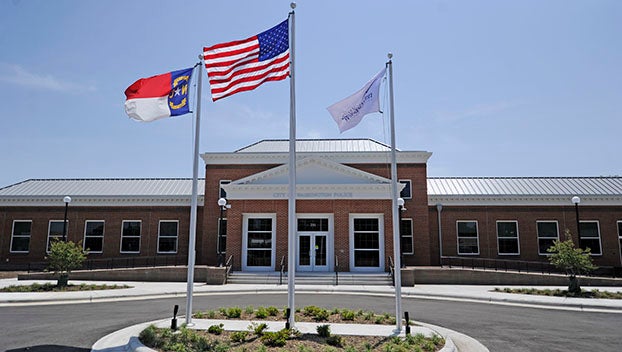First Port Celebration, Bath history to be examined in educational program
Published 8:21 pm Friday, March 11, 2016
Years ago, Gillian Jones had the opportunity to sail with Dr. John Gray Blount of Washington on a trip to bring his boat back to North Carolina from the Bahamas. As a descendant of John Gray Blount, a port commissioner at Port Bath in the 1700s, Jones was able to not only learn about who Blount, the commissioner, was, but she also was able to get a feel of what it was like to sail into a port from the Atlantic Ocean.
The trip was an inspiration to Jones, which led her to research Port Bath and its existence in the colonial time period, as well as other history related to the area. On Memorial Day weekend, Beaufort County and the Town of Bath will be celebrating the Tri-Centennial Anniversary of North Carolina’s first official seaport town port of entry. The colonial port district was manned by port officials and headquartered in Bath Towne, the county seat of the old Bath County, created in 1696.
With Bath’s First Port Celebration a few short months away, Jones is passing on that knowledge of local history through an upcoming program at the North Carolina Estuarium. The celebration commemorates the anniversary of the Aug. 1, 1716 proclamation of Port Bath being the first official port of entry in North Carolina.
“I want Beaufort County people to know this is something to really be proud of,” Jones said. “
Jones said the celebration is about understanding Port Bath’s history between 1716 and 1790, a pivotal period of time in the old Bath County’s growth. Essentially, the county, which stretched from the Albemarle Sound to the Cape Fear River and west to Tennessee, helped shape the state. Port Bath was the official hub of all commerce and the commissioned port officials there ensured fair trade through monitoring shipping and trade practices, Jones said. Among the imports into the port would have been sugar, tea and cloth, while exports would have been turpentine, tar, pitch and other naval stores, as well as cypress shingles, the No. 1 export, according to Jones.
“Economies can’t grow without fair trade,” Jones said. “Port officials were like the Coast Guard and Homeland Security and Navy and IRS all rolled into one. It maintained the system of checks and balances that were required for trade and merchants to feel safe trading in the state of North Carolina. The plantation owners and merchants had to have a business place to come and for imports and exports that they felt was safe and ethical. That accountability was really important for trade to flourish.”
Jones said Port Bath was also a pivotal component in allowing other areas to grow and the birth of other ports such as New Bern, Wilmington and Beaufort.
In 1790, Port Bath went through a period of transition to become Port Washington, after the courthouse and county seat moved from Bath to Washington.
Jones, whose family is from Bath, said she heard about the First Port Celebration, set for May 28 in Bath, and approached Lee Swain, director of Bath Historic Site, to volunteer to help with the event.
“She said, ‘You could help with education,’” Jones said. “All my life I’ve been a lover of the Pamlico River and what I consider our maritime heritage. It’s something I really wanted to share.”
In April, Jones was awarded a grant by the Bath Historic Foundation to come up with some portable learning aids to help educate teachers and students in the area, she said. This, too, led her to research the history of Port Bath and the importance of the celebration. Jones has used the materials for educational purposes at Bath Fest, an annual festival celebrating the arts and history associated with Bath, as well as at outdoor events at Pirates in the Port, an event to mark the pirating history of the area.
Jones’ educational mission will continue at the North Carolina Estuarium on March 17, from 6-7 p.m. The program, presented by the Historic Port of Washington, in partnership with the Estuarium, will cover the early maritime history of Beaufort County and its first customs service. There is a $4 entry fee for the program, and seating is limited.
For more information or to reserve a spot, contact the North Carolina Estuarium at 252-948-0000.





